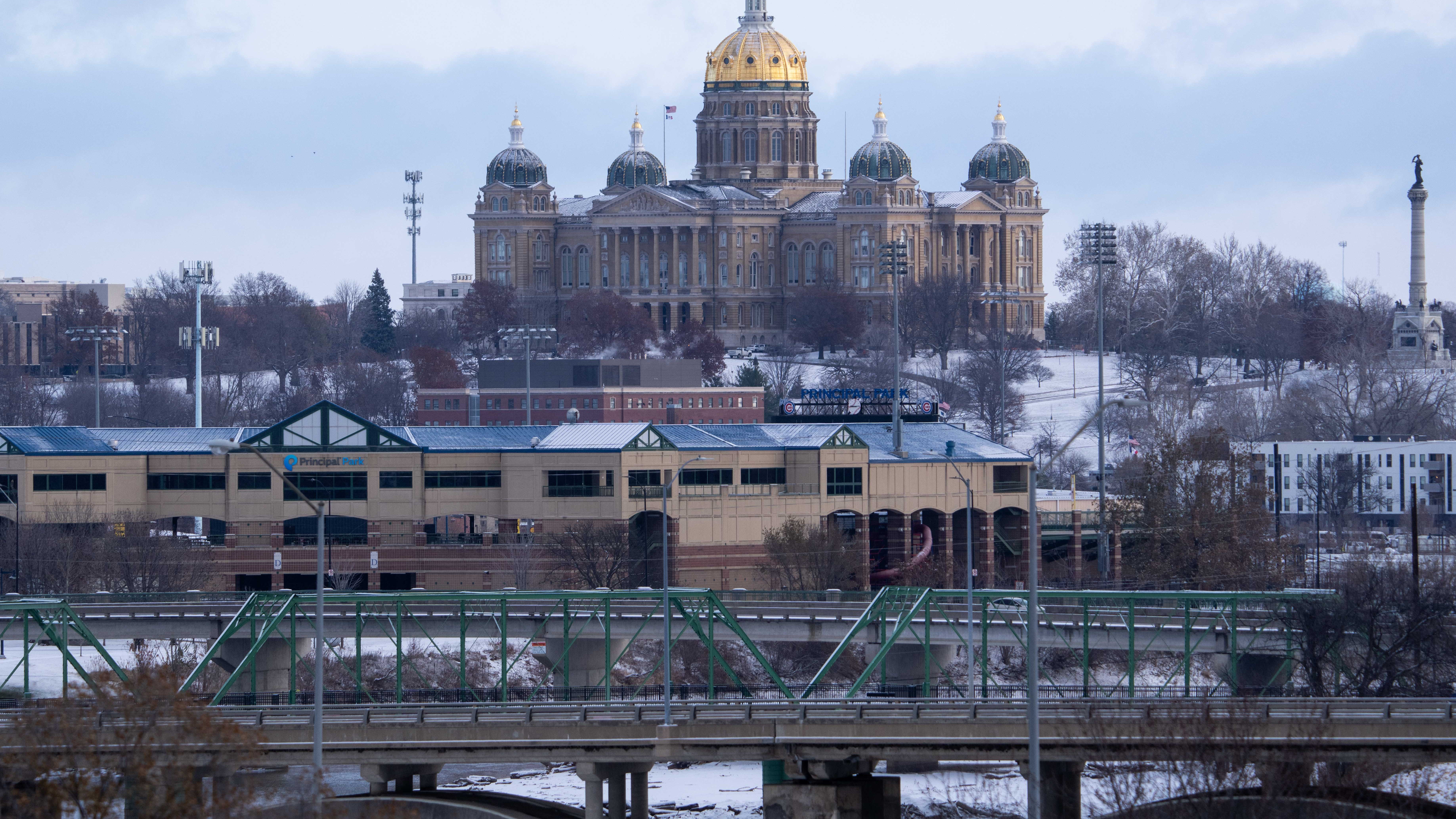
Watch: Iowa homeowners talk property taxes with Des Moines Register
Homeowners discuss Iowa’s property taxes as Iowa legislative leaders make property tax reform their No. 1 goal this legislative session.
- Iowa Senate Republicans are proposing a 25% discount on home values up to $125,000 for property tax relief, changing a proposed $50,000 homestead exemption to address smaller communities’ concerns.
- The bill also phases in the elimination of the state’s rollback rate over 10 years and maintains a 2% cap on property tax growth with exceptions.
- The fate of property tax legislation is unclear as lawmakers approach session adjournment and both chambers have yet to pass it.
Senate lawmakers are advancing a new version of legislation overhauling Iowa’s property tax system as the clock runs out for legislators to send a bill to Gov. Kim Reynolds‘ desk before they end the 2025 legislative session.
The Senate Ways and Means Committee unanimously pushed forward Senate Study Bill 1227 May 8 with an amendment that would gives Iowans a 25% discount on the value of their house up to $125,000. The change would modify the previously proposed $50,000 property tax exemption for every Iowa household.
But the latest version of property tax legislation — the companion measure House Study Bill 328 — has yet to receive its first legislative consideration in the House. It remains unclear whether the House has agreed to the tweaks or whether the legislation will reach a floor vote in either chamber before the 2025 session ends in the coming days.
“The system right now is not built to sustain these valuation increases. Going to a revenue limitation is much more property taxpayer friendly,” said Sen. Dan Dawson, R-Council Bluffs, who chairs the Senate Ways and Means Committee. “And that’s been the premise of this bill. It is not to make sure local governments get theirs first and then the property taxpayer has to basically see what we can get afterwards.”
House Speaker Pat Grassley, R-New Hartford, told reporters May 1 he agrees that “there’s a level of frustration” among Iowans “that they’re not seeing more progress” on property tax legislation.
“We’re still hopeful that we can find ourselves in a position where we can at least try to alleviate some immediate impacts that Iowans are going to see, whether it’s through significant assessments, whether it’s through increases,” he said. “I’m hopeful that we can find a path to do something.”
Still, Dawson said property tax legislation could “absolutely” make it over the finish line while the session remains in overtime.
Even Reynolds has seemed doubtful, saying in an interview with WHO Radio’s Simon Conway that lawmakers were running out of a “runway” to make such complex changes this session.
“There is no pipeline that runs through the property tax endeavor here in the Iowa Legislature,” Dawson said, referring to 12 Senate Republicans who vowed to vote against budget bills until the chamber takes up House-backed legislation limiting the use of eminent domain for carbon capture pipelines.
What changes is the Senate proposing?
Lawmakers already had modified the original bill unveiled in March by creating a $50,000 homestead exemption for every Iowa household, up from $25,000 in the first bill.
Dawson told reporters that “one-size-fits-all number didn’t work” for cities and counties as it would eliminate most property tax revenue for small towns where home values are low.
That’s why the Senate is now pitching a 25% discount on the value of a house up to $125,000 for every homestead instead of the “static” homestead exemption.
“That, I think, really hits the mark between the small communities and the large communities from the feedback that we’re getting,” Dawson said.
The bill keeps a 2% cap on property tax growth for cities and counties, with some exceptions for new growth, but allows an increase when inflation runs high.
Abigail Maas, a member of the Iowa County Board of Supervisors, supported the changes to the bill and said tying the restrictions to inflation should help calm taxing entities’ fears about potential issues arising.
“We can’t predict or prevent every little issue that can come out of a huge reform bill like this, but I feel like a lot of them have been identified,” Maas said.
With the Senate’s latest changes, lawmakers have found a middle ground between the first and second versions of the bill on eliminating the “rollback” rate. The rate is calculated each year and limits the amount of property taxes Iowans pay to a percentage of what their property is worth.
The Senate amendment would phase in the elimination of the state’s rollback for residential and commercial properties over 10 years, rather than immediately ending it.
“If we get those building blocks right, we can do something great for Iowans,” Dawson said.
The bill still provides about $400 million in property tax relief by using state general funds to cover some school funding currently paid for with property taxes.
Mike Owen, deputy director of Common Good Iowa, which is now registered to lobby against the bill, said lawmakers should delay passing such a massive property tax system overhaul and hold hearings across the state later this year to receive more feedback.
He said it’s not sustainable to shift more services to the state’s general fund while revenues dwindle, so lawmakers should first identify which services are expendable and then decide whether cutting taxes makes sense.
“There wasn’t enough time in the session to deal with something so big,” Owen said. “There still is not.”
Schools still concerned about funding shift
Education groups shared some concerns about the school funding changes, mainly uncertainty about how the legislation would affect voter-approved local tax revenue schools use to cover debt they take on for construction projects.
Margaret Buckton, representing the Urban Education Network and Rural School Advocates of Iowa, pointed out that lawmakers and the public do not yet have an analysis on the property tax proposal from the state’s nonpartisan Legislative Services Agency. Those are made available before bills reach a floor vote in either chamber.
“It’s about transparency and predictability, and we all need to see the numbers that you will be relying on,” Buckton said.
Sen. Janet Petersen, D-Des Moines, urged caution and pointed to the state’s need to tap into about $900 million from state reserves to fill out the budget for fiscal year 2026, which starts July 1, under Reynolds’ proposal.
Petersen said she wanted to make sure school budgets don’t take a hit from the funding switch.
“We need to proceed with caution when we say the state’s going to pick up a portion of the tab,” Petersen said.
Dawson said the money wouldn’t be new funding but would come from sunsetting the business property tax credit and the homestead tax credit.
Petersen and all Democrats on the Senate Ways and Means Committee ultimately supported advancing the legislation, saying it moved in the right direction of providing relief for homeowners.
“Hopefully this will persuade the House that the Senate is in the direction that we want to go,” said Sen. Tony Bisignano, D-Des Moines.
Marissa Payne covers the Iowa Statehouse and politics for the Register. Reach her by email at mjpayne@registermedia.com. Follow her on X, formerly known as Twitter, at @marissajpayne.
(This story has been updated to add new information.)
This story was updated to add a gallery.




